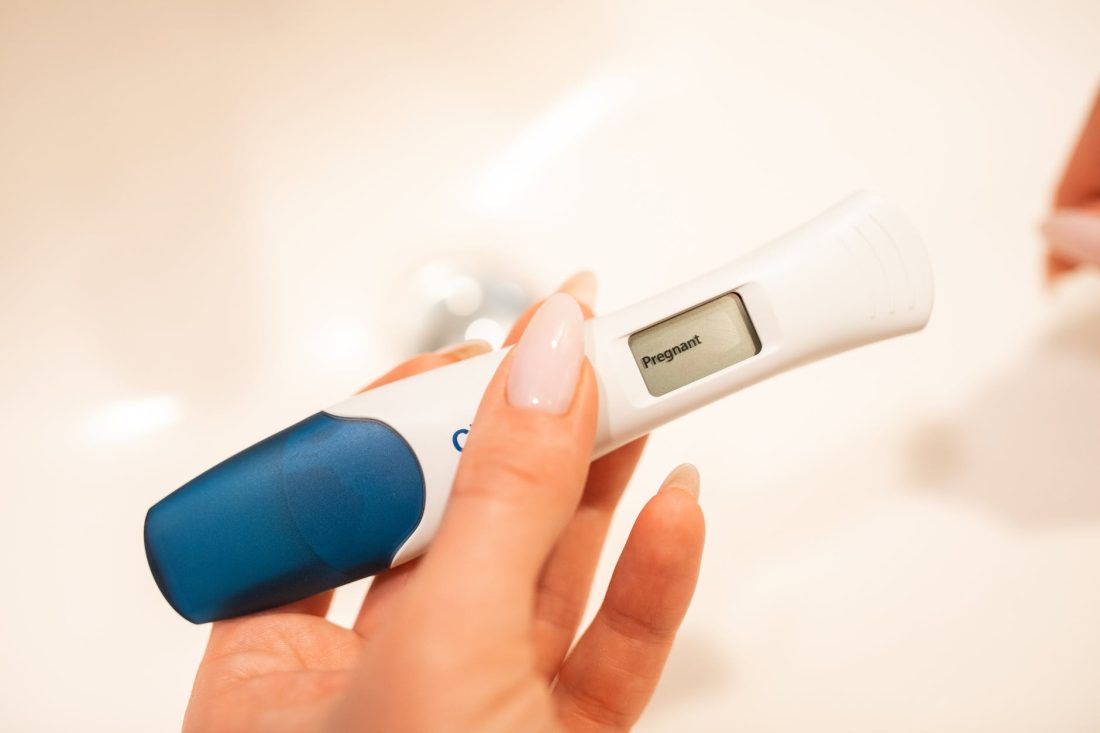If you are trying to get pregnant or think that you might be, it’s essential to know what signs to look out for so you know when the best time is to take a pregnancy test. The timing of this decision can determine whether or not you get an accurate reading, so it really does matter. Every woman is different, but some common bodily changes could indicate pregnancy, so it can be reassuring to take a test.

How Do I Know If I’m Pregnant?
The only way to know for sure whether or not you are pregnant is by taking a test. However, taking a pregnancy test too early may give an unclear or even false result. The recommended waiting time to take a pregnancy test is one week after your period is due. This is because tests measure the presence of the pregnancy hormone hCG. Some early pregnancy tests are particularly sensitive to hCG and may be able to give you a reading four or even five days before your missed period, but they cannot guarantee accuracy. If you get a negative reading, it doesn’t mean that your urine doesn’t contain hCG; it just means that there might not be enough to trigger a positive result.
We’ve put together some common early signs of pregnancy that might also tell you it’s time to take that all-important test:
- A Missed Period
A missed period is the most common sign of early pregnancy and one of the most reliable. Most women have a twenty-eight-day menstrual cycle, so it might be time to take a pregnancy test if it’s been more than a month since your last period.
- Breast tenderness
In early pregnancy, your body begins to make changes to support the baby’s growth, so hormonal changes and increased blood flow may make your breasts feel tender and swollen. Your veins might look slightly darker, and your nipples might also feel more sensitive.
- Cramps and Spotting
Implantation of the fertilised egg can cause a feeling similar to menstrual cramps and sometimes light bleeding or a light discharge. Spotting and cramps are often very slight and can be mistaken for the start of a period. Any discharge might appear milky white due to the thickening of the walls of the vagina.
- Mood swings
Hormonal changes in early pregnancy, from the pregnancy hormone hCG, and increased levels of oestrogen and progesterone can cause mood changes, particularly during the first trimester.
- Frequent Urination or Constipation
The need to go to the toilet to pee more regularly as well as feeling constipated can also be a result of hormone changes connected to pregnancy.
- Nausea
Morning sickness can start in early pregnancy and is sometimes experienced as food aversion or in connection with a heightened sense of smell that could leave you feeling queasy.
- Tiredness
As the weeks go by in early pregnancy, feelings of fatigue can increase as your body focuses its energy on growing the baby. If you notice you’re feeling more sluggish than usual, in addition to some of the above signs, it might be time to take a pregnancy test.
- Something is Different
Your body is a miracle, and no one knows it better than you do. Suppose you are trying to conceive or have had sexual intercourse recently when the contraception has failed, or you used the withdrawal method. Early signs of pregnancy might appear as bloating, fatigue, unusual hunger or food cravings, or a general sense that something is different, so it might be wise to take a test.
When Is The Best Time To Take A Pregnancy Test?
Looking out for the signs outlined in this article can indicate when significant hormone changes in your body are telling you it’s time to take a pregnancy test. Some of these signs can occur during other times in your menstrual cycle, so if you’re planning to get pregnant, it might be helpful to find out about other indicators of fertility and ovulation.




